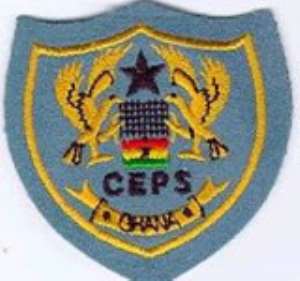
The government has decided to review the tax exemption regime to curtail the continuous increase in losses of revenue through tax exemptions.
Records at the Ministry of Finance and Economic Planning indicate that in 2006 the country lost an estimated revenue of ¢2.3 trillion through tax exemptions.
A draft report on the 2007 policy ini¬tiatives (PIs) and implementation challenges (IC) compiled by the Implementation Unit of the Ministry of Finance and Economic Planning stated that "this clearly undermines government's efforts at increasing revenue.”
To reverse the trend, the government has decided to effectively service the productive areas of the economy, review the exemption regime as a whole, reduce the scope of the exemptions and eliminate abuses in the administration and application of the tax exemption facility.
In achieving the objective, the report made mention of the fact that a series of meetings had been held among stakeholders such as the Tax Policy Unit of the ministry and the Customs, Excise and Preventive Service (CEPS) to deliberate on the issue.
It stated that the report from the deliberations had been circulated to other stakeholders, including taxation experts and diplomatic missions, for their comments.
The report said some of the com¬ments had been received and were being worked on, adding that frantic efforts were being made to receive and consolidate the comments into formal reports of recommendations for further discussion.
It expressed optimism that Parliament would give a legal backing to the agreed recommendations when the time came to permit their implementation.
Speaking to the Daily Graphic in Accra Thursday, an official of CEPS said importers of some specified items did not either pay taxes or paid less because the items were exempted.
He pointed out that in as much as the country could not completely stop tax exemptions because it also gained in a way, the number of exemptions and the organisations involved should be reviewed.
He mentioned some imported items which did not attract duties as project financing, which involved the importation of equipment and materials for donor-supported construction works in the energy, road, health and educational sectors.
He said since Ghana was a signatory to some international conventions, imports made by the diplomatic missions in Ghana and the United Nations (UN) agencies such as the World Health Organisations (WHO), the Food and Agriculture Organisation (FAO), the United Nations Children's Fund (UNICEF), among others, did not attract taxation.
Touching on the donor agencies, he pointed out that since the government benefited from many of such organisations through various forms of assistance, the country could not demand taxes from them, adding that our missions elsewhere also enjoyed exemptions.
The source said to encourage more people to go into agriculture, agricultural equipment was not taxed, just as jute sacks for the Ghana Cocoa Board (COCOBOD) to bag cocoa beans, chemicals for poultry and ingredients for poultry feed.
Items such as personal effects being brought home by citizens living abroad are also not taxed.
He noted that there were some ministries, agencies and departments (MDAs) and non-governmental organisations (NGOs) whose activities demanded that they paid taxes.




 We’ll no longer tolerate your empty, unwarranted attacks – TUC blasts Prof Adei
We’ll no longer tolerate your empty, unwarranted attacks – TUC blasts Prof Adei
 Bawumia donates GHc200,000 to support Madina fire victims
Bawumia donates GHc200,000 to support Madina fire victims
 IMF to disburse US$360million third tranche to Ghana without creditors MoU
IMF to disburse US$360million third tranche to Ghana without creditors MoU
 Truck owner share insights into train collision incident
Truck owner share insights into train collision incident
 Paramount chief of Bassare Traditional Area passes on
Paramount chief of Bassare Traditional Area passes on
 Two teachers in court over alleged illegal possession of BECE papers
Two teachers in court over alleged illegal possession of BECE papers
 Sunyani: Victim allegedly shot by traditional warriors appeals for justice
Sunyani: Victim allegedly shot by traditional warriors appeals for justice
 Mahama vows to scrap teacher licensure exams, review Free SHS policy
Mahama vows to scrap teacher licensure exams, review Free SHS policy
 Government will replace burnt Madina shops with a new three-story, 120-store fac...
Government will replace burnt Madina shops with a new three-story, 120-store fac...
